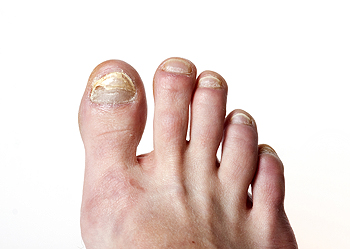
Thick toenails are a prevalent issue among the older adults, often signifying underlying health problems that require intervention. Prompt attention is important, as delayed treatment can result in excessively brittle nails. Various factors contribute to the development of thick toenails. Fungal nail infections, which affect nearly 10 percent of the U.S. population, are a leading cause. Dermatophytes, candida, or non-dermatophytic molds often trigger these infections. Nail injuries, poor foot hygiene, and compromised immune systems can make the situation worse. Nail psoriasis, a common skin condition, presents another potential cause of thick toenails. Distinctive symptoms include pitting, ridging, and abnormal contours. Additionally, diabetes, toe injuries, yellow nail syndrome, and the natural aging process can contribute to the thickening of toenails. Treatment options include prescribed antifungal medications, both oral and topical, and, in severe cases, surgical or chemical nail removal. Recognizing the diverse causes of thick toenails enables individuals to seek appropriate podiatric care. For help with thickened toenails, it is suggested that you schedule an appointment with a podiatrist for an evaluation and a discussion of treatment options.
For more information about treatment, contact one of our podiatrists of Princeton Foot & Ankle Associates. Our doctors can provide the care you need to keep you pain-free and on your feet.
Toenail Fungus Treatment
Toenail fungus is a condition that affects many people and can be especially hard to get rid of. Fortunately, there are several methods to go about treating and avoiding it.
Antifungals & Deterrence
Oral antifungal medicine has been shown to be effective in many cases. It is important to consult with a podiatrist to determine the proper regiment for you, or potentially explore other options.
Applying foot powder on the feet and shoes helps keep the feet free of moisture and sweat.
Sandals or open toed shoes – Wearing these will allow air movement and help keep feet dry. They also expose your feet to light, which fungus cannot tolerate. Socks with moisture wicking material also help as well.
If you have any questions please feel free to contact one of our offices located in Princeton and West Windsor, NJ . We offer the newest diagnostic tools and technology to treat your foot and ankle needs.
